The sex hormone testosterone is also an important source of strength for women – this is how you can support them.
When you hear the word testosterone, what comes to mind? Muscular men and everything that is typically male? If so, you are not alone. Stereotypes (and myths) aside, however, the sex hormone testosterone is just as important to women’s health. An imbalance can actually affect us in more ways than one. Let’s demystify this misunderstood hormone.
Why women need testosterone too
If you’ve ever had your hormones checked, you know that testosterone isn’t unique to men. In fact, it is present in all people – just in different amounts. Women also produce testosterone (in our ovaries and adrenal glands). While we tend to have lower levels than men, this hormone is far from insignificant. Reasons why we need it:
Testosterone gives energy and vitality
Testosterone contributes to our overall energy level and vitality. It helps regulate mood and gets us up and going (important for an active lifestyle!).
Testosterone for muscles and bones
Adequate testosterone levels play a role in maintaining muscle mass and bone density. It helps prevent muscle breakdown and keep our skeletal system strong.
Testosterone controls libido and sex drive
Did you know that testosterone is involved in the regulation of sexual desire and function? Low testosterone can lead to decreased libido, which can affect relationships and self-esteem.
Testosterone improves cognitive function
Moreover, testosterone is not only about physical health, but also about cognitive functions, such as memory and mental clarity.
Recognizing low testosterone in women
Starting in our 20s, our testosterone production continues to decline until menopause. Unfortunately, the symptoms of low testosterone are rather obscure: they are subtle and often attributed to other factors. In addition, societal stereotypes often discourage women from seeking help for what is perceived as a “male” problem. Aside from a blood test, though, how can you tell if your testosterone levels are low? Here are the typical signs:
- Persistent fatigue and lack of energy
- Unexplained mood swings, irritability, or depression.
- A noticeable decrease in sexual desire or sexual satisfaction
- Difficulty maintaining muscle tone or strength
- An increased risk of bone fractures or brittle bones
- Memory lapses or concentration difficulties
If you suspect you have low testosterone, contact your health care provider. He or she can determine your hormone levels with a hormone test and explore possible treatment options.
Holistic ways to optimize testosterone levels
In addition to your doctor’s recommendations, you can try these holistic methods to boost your testosterone levels naturally:
- Diet: One of the most common causes of low testosterone levels is diet. In particular, a deficiency of certain nutrients, such as zinc and vitamin D, can have a negative effect. For healthy testosterone production, make sure to eat a balanced diet rich in whole foods, fiber-rich vegetables, lean protein and healthy, nutrient-rich fats. Limit excessive consumption of extremely processed foods and trans fats. Also, make sure you’re eating enough protein. Lean meats, fish, eggs or plant-based alternatives like non-GMO tempeh, beans and legumes are hormone-friendly.
- Get moving: Incorporate both cardiovascular exercise (like running or biking) and strength training (weight lifting) into your program. Especially strength training can increase testosterone! But be careful: avoid excessive training.
- Sleep: As with any hormonal imbalance, the quality of sleep is critical (insufficient sleep can lead to a decrease in testosterone levels). Aim for 7-9 hours of restful sleep per night.
- Stress Management: Practice stress reduction techniques such as yoga, meditation, and deep breathing exercises. High stress levels can lead to increased cortisol production, which can lower testosterone levels. You can also lower cortisol with the help of ashwagandha as a dietary supplement. However, be sure to use a clinical dosage of 600 milligrams per day.
- Food supplements: Take vitamins and minerals in particular, especially vitamin D, zinc and magnesium. They are important for testosterone production. Studies show that Reishi mushrooms can also regulate testosterone levels. You can find it as an add on in our Vitamin D Hello Sunshine or Hello Sunshine plus K2
- Sexual activity: yes, intimacy with your partner can help maintain healthy testosterone levels!
- Hormone replacement therapy: Testosterone is usually used during the menopause to treat deficiency symptoms such as low libido, fatigue and low muscle mass (e.g. as a gel, patch or pellets that are implanted)
These supplements support your testosterone levels
Only the best vitamins, minerals and botanicals, derived from organic ingredients, are considered for our Ogaenics organic nutritional supplements. And we’re just as conscientious about what’s left out as we are about what goes in.
-
Bestseller
Calm A Lama
Plant-based organic magnesium from premium organic green algae extract for muscles and nerves38,17 €44,90 €1.076,74 €915,35 € / kg -
Bestseller
Mrs Do-It-All 18+
Organic Multivitamin Complex Premium for women of fertile age, All-In-One!67,92 €79,90 €2.302,59 €1.957,35 € / kg -
Bestseller
Mrs Do-It-All 45+
Organic Multivitamin Complex Premium for menopausal women, All-In-One!67,92 €79,90 €1.997,50 €1.698,00 € / kg -
Bestseller
Mrs Do-It-All 55+
Organic Multivitamin Complex Premium for women after the menopause, All-In-One!67,92 €79,90 €1.997,50 €1.698,00 € / kg
Conclusion
Testosterone is not only a “male” hormone, but also plays a crucial role in women’s health. From energy and muscles to libido and cognitive functions, it affects numerous aspects of our well-being. Low testosterone can have subtle but significant effects. By understanding the importance of testosterone for women and taking holistic approaches to boosting our hormone levels, we can optimize our health and quality of life. It is time to move beyond the myths and recognize the importance of this misunderstood hormone.


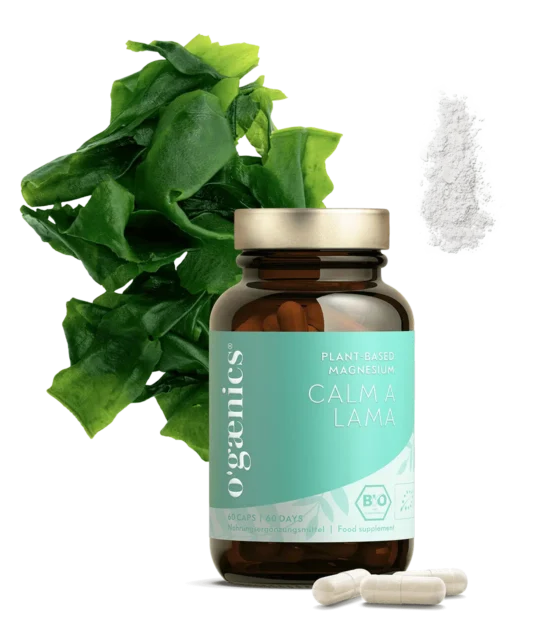
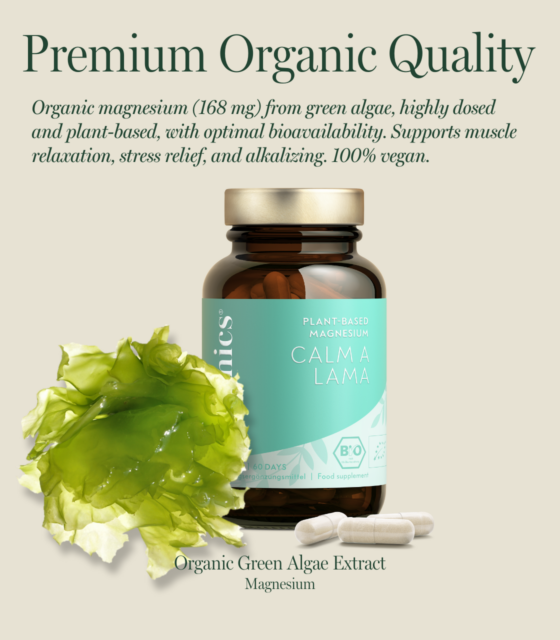
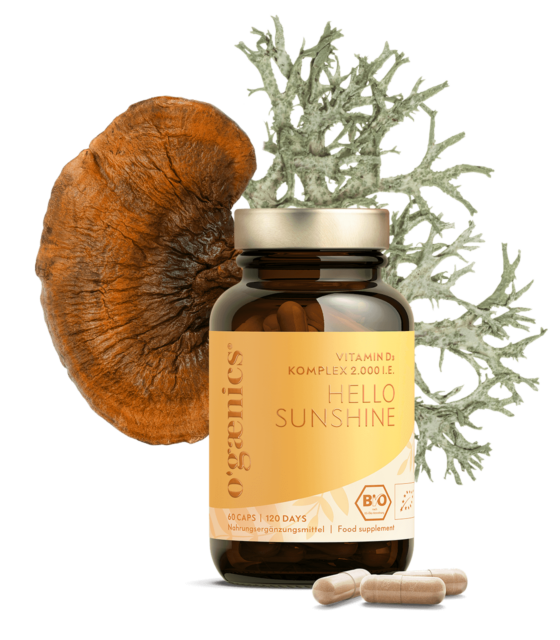
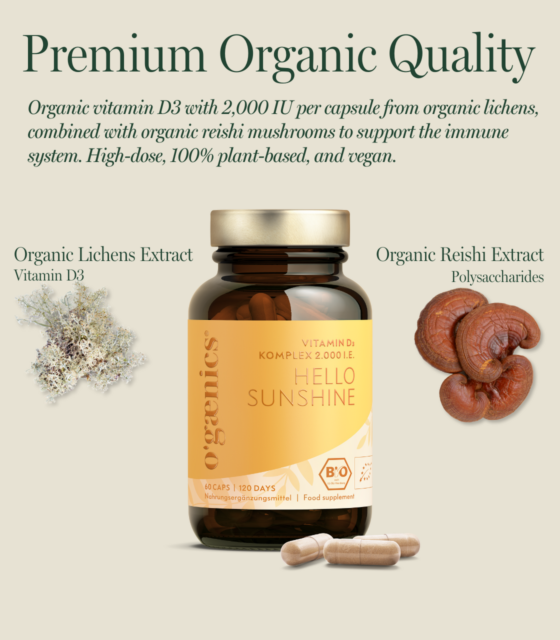
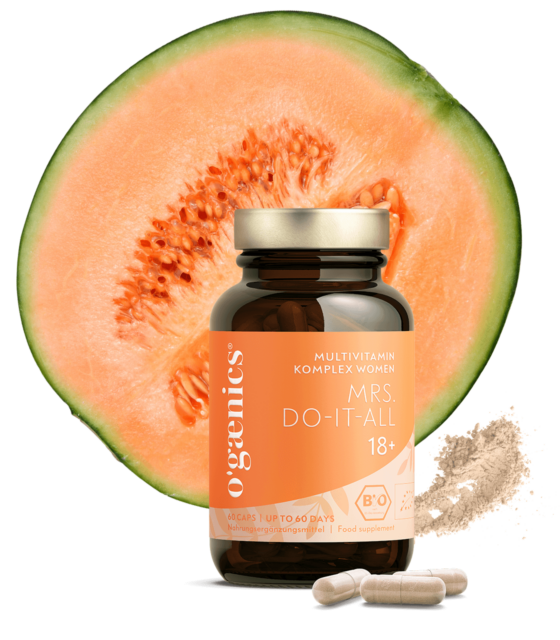
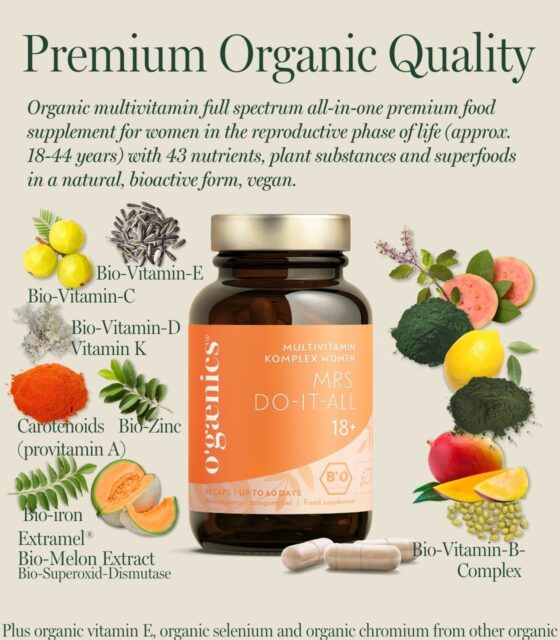
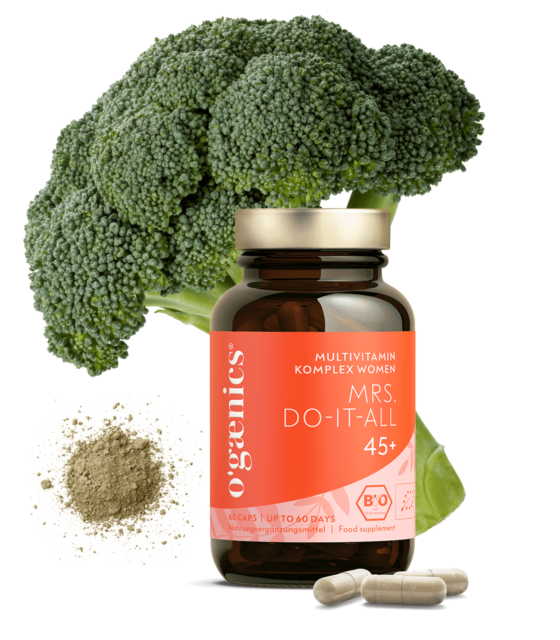
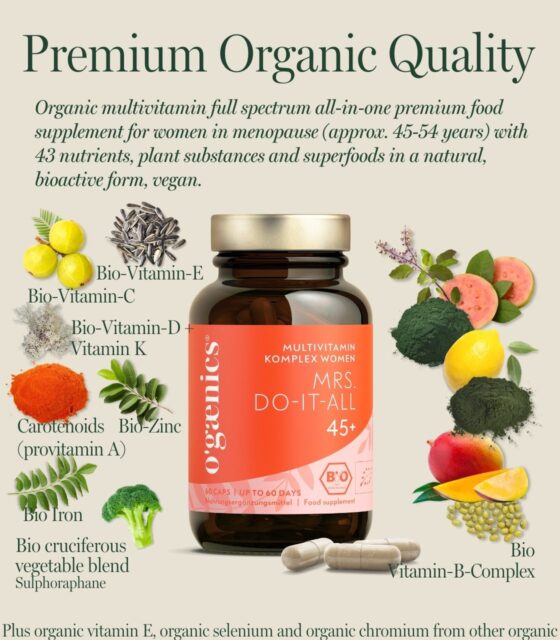
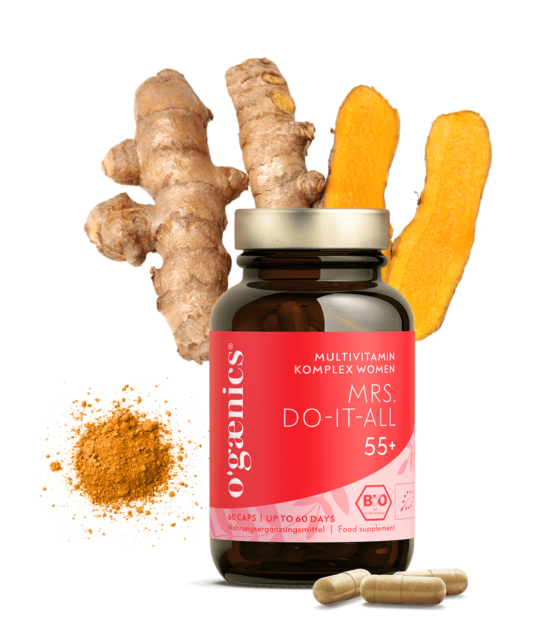
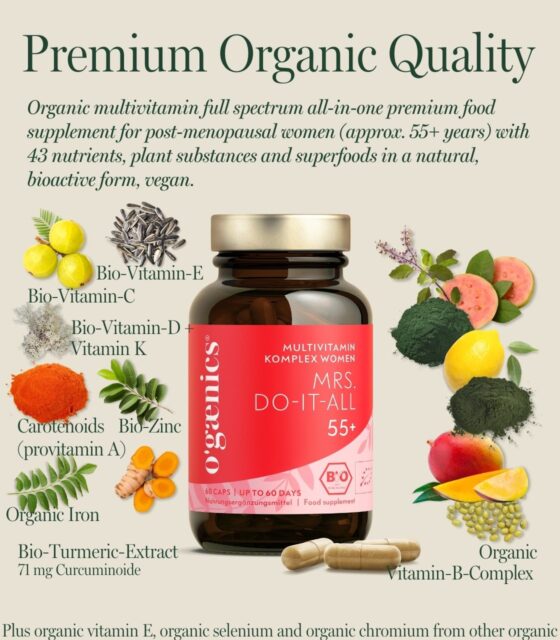
 No products in the cart.
No products in the cart.